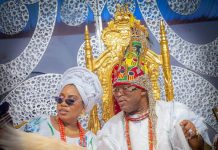Apart from the National Sugar Master Plan initiated in 2012, Dangote Sugar Refinery has crafted its own master plan geared towards ensuring that Nigeria achieves its broad national sugar objectives, according to company papers.
Entitled, “Dangote Sugar for Nigeria Master Plan,” the vision is targeted at ensuring that the company produces 1.5 million metric tonnes per annum (MT/PA) of refined sugar from locally grown sugarcane.
Dangote Sugar Refinery through its backward integration programme (BIP) aims to ensure that Africa’s most populous nation has a virile and thriving sugarcane-to-sugar value chain.
Analysts believe that this is achievable given the speed with which work is done at Numan and Tunga plants.
- Dangote, Adenuga, Abdulsamad, Otedola make Forbes Billionaires list 2024
- Police confirm abduction of 3 UNICAL students on campus
The push had begun immediately after 2012 when former President Goodluck Jonathan initiated the Nigerian Sugar Master Plan (NSMP), which was aimed at raising the local sugar production to attain self-sufficiency and reduce the importation of raw and refined sugar.
The initiative was fully implemented by serious stakeholders, one of which was DSR, led by Africa’s richest man, Alhaji Aliko Dangote.
Twelve years after the master plan, Dangote Sugar has surpassed expectations, acquiring over 120, 000 hectares (ha) of land for its sugar BIP projects in Adamawa, Nasarawa and Taraba states. Quite a big part of the hectares have so far been cleared and planted. Some are in their secondary stages.
By developing these plantations, DSR is working hard to ensure that Nigeria ends the importation of raw sugar – which is an essential input – in a matter of years.
Without doubt, importation of raw sugar costs Nigeria millions of dollars annually. In 2020 alone, raw sugar importation cost Nigeria $433 million, according to the National Sugar Development Council. This is even lower than $516 million spent by Nigeria in 2016 while importing raw sugar.
With the current foreign exchange crunch occasioned by Nigeria’s low productive and export capacities, analysts say the projects can help to reduce raw sugar imports and subsequently cut Nigeria’s exposure to forex.
Research shows that DSR owns 32,000 ha in Numan, Adamawa State, as well as 68,000 ha in Tunga, Nasarawa State for its BIP projects. In Lau/Tau, the company acquired 25,000 ha for its BIP projects in Taraba State. For a country with acute unemployment crisis, these investments have proven to be pivotal, engaging rural farmers and giving them hope amid economic crisis.
Dangote Sugar currently has over 12,000 direct and indirect employees and has developed a robust outgrower scheme of over 1,000 farmers in addition to other empowerment schemes for persons in the immediate communities.
Investments are currently drying up in the Nigerian economy. In the manufacturing sector, for instance, investments in the first half of 2023 stood at N193 billion, according to the Manufacturers Association of Nigeria (MAN). This represents 60 percent drop from N483 billion investments made by manufacturers in the first half of 2014. Amid tanking investment inflows and economic uncertainties, DSR has demonstrated zeal and confidence in the Nigerian economy, particularly the sugar value chain.
So far, the company has committed over $700 million in land acquisition, machinery, infrastructure, manpower, community relations, corporate social responsibility (CSR) and other impact activities.
The company told Nasarawa State House of Assembly members recently that the $700 million investments in sugar would revolutionalize the economy and lift many out of poverty.




